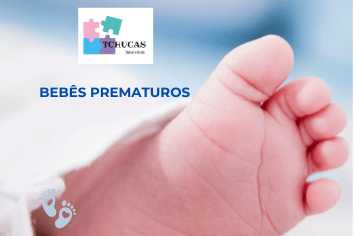

1 in 10 babies born worldwide is premature.
November 17th is celebrated as World Prematurity Day.
All around the world, one in ten babies is born prematurely, or before the 37th week of pregnancy , when the development of the fetus is not yet fully complete. Premature babies are very special because immediately begin their fight for life and may face various developmental difficulties, although nothing that cannot be overcome with due support and assistance parents and professionals.
Babies begin to feel the suction in the uterus between 11 and 13 weeks of pregnancy , and this continuous "training" is crucial: as soon as babies learn to suck, they learn to know how to feed to survive, and this is as important for them as knowing how to breathe.
Suction is, therefore, a natural necessity ; This rhythmic and instinctive action is genetically determined and reaches maximum functionality after birth, in the 40th week of pregnancy , when it goes from a simple reflex to a complex behavior with profound value in terms of emotional bonding.
For premature babies born before 40 weeks, it is essential that this "training" continues outside the womb , to allow this physiological maturation process to be completed and to allow the newborn to perform and coordinate the three actions that are critical to independent survival of any baby: breathe, suck and swallow.
Very premature babies are fed through tubes because their physiological development does not yet allow them to suck effectively, and also because these premature babies do not have the strength to do so. In the womb, babies place their fingers in their mouths, swallow amniotic fluid and begin to experience sucking , all facilitated by the lack of gravity as they "float" in the amniotic fluid.
In the absence of these conditions and other factors—gravity, the baby's underdeveloped muscles and oral cavity, limited tongue functionality, poor sucking, and generally the environment to which babies are exposed inside an incubator—cause the baby's mouth to open. premature baby does not develop completely as it should, and requires different care and assistance.
Therefore, it is essential to support this development and provide premature babies with the necessary tools so they can compensate for this temporary absence of the factors that allow development to occur in the womb. A variety of different stimuli for all parts of the mouth, such as perioral stimulation of the cheeks, lips and jaw and intraoral stimulation of the gums and tongue, as well as facilitation of non-nutritive sucking, are common practices in neonatal intensive care units.
The use of Special pacifiers , designed specifically for young babies, is therefore very important. Must be pacifiers small and light , with protector anatomically designed so as not to obstruct the face or infer with any tube. These pacifiers are essential aids to stimulate sucking, which at this early stage of the baby is not yet nutritious.
The non-nutritive sucking of a pacifier is also extremely valuable from a clinical point of view, as it can help the baby manage stress. In fact, in premature babies, the pacifier is one of the most important aids used to reduce perceived pain: satisfies the baby's natural and physiological needs , and the "pacifying mechanism" can also lead to significant improvements in respiratory and gastrointestinal function , in addition to reduce energy consumption , decrease behavioral responses to stress , and Minimize crying and fussing that occur as a result.


0 comments